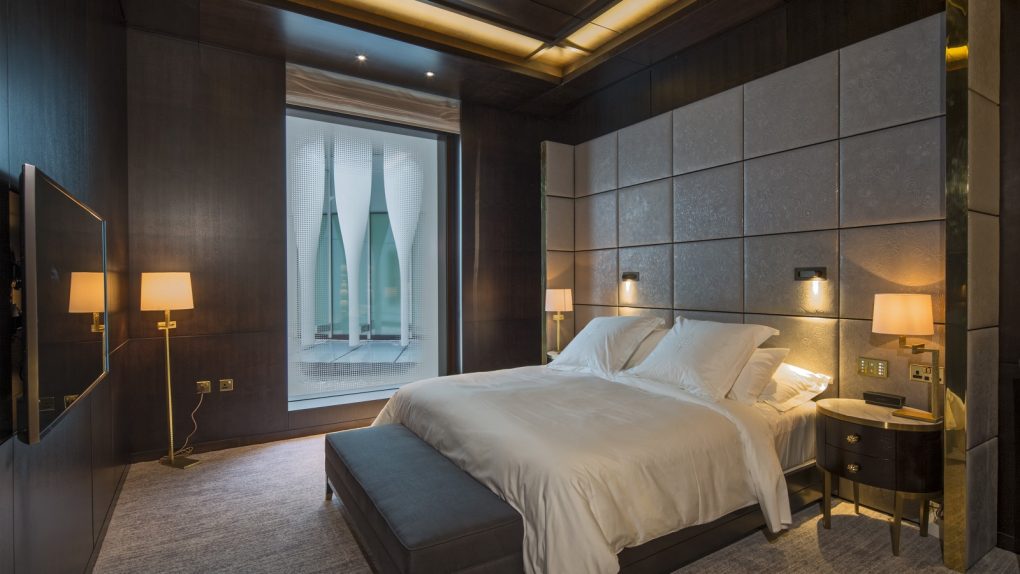- Hotels have enacted far-ranging safety and cleaning protocols in the wake of the coronavirus.
- Still, staying at a hotel during the coronavirus pandemic is likely not worth the risk and should be avoided if possible.
Over the past few weeks, many states across the country have started reopening after months of strict lockdown measures. Of course, it’s not as if life has reverted back to normal just yet. In some states, many stores won’t even let patrons inside the door if they’re not wearing masks. And many restaurants, meanwhile, are only operating at 25%-50% capacity so as to adhere to social distancing guidelines.
At this point, the road to full recovery remains unclear, and it’s entirely possible that we’ll remain in a state of uncertainty until a coronavirus vaccine is developed. Indeed, the fact that some states are reopening as the number of coronavirus cases surge across dozens of southern U.S. states underscores how unpredictable life has become these days.
In light of the aforementioned uncertainty, there are some questions many people have about coronavirus transmission when it comes to basic activities such as shaking hands or flying. One area that we haven’t seen covered at length involves hotels. And while staying at a hotel seems a bit shortsighted at this point, the reality is that people are starting to travel a bit more now that lockdown has lifted and the weather is warming up. In light of that, you might naturally be wondering: just how safe — or dangerous — is it to stay at a hotel these days?
“As with any public place, there are transmission risks in hotels,” Andria Rusk, a Ph.D. in Behavioral Sciences and Infectious Disease, recently told PopSugar. “This risk comes from interacting with fomites — objects or surfaces that are likely to carry infection — or interacting with infected people. The risk in a hotel environment could come from interacting with hotel employees, such as front desk staff or housekeeping staff, or with other hotel guests.”
In light of that, if you’re inclined to stay a hotel in the near future, you’d be well-advised to limit your time in high foot-traffic areas like fitness centers. You should also make a point to avoid direct contact with surfaces like elevator buttons and doorknobs whenever possible.
That said, hotel chains are touting their new cleaning protocols to assure visitors that they can spend the night and not have to worry about contracting the coronavirus.
Hilton Hotels, for instance, recently said the following via a press release:
Hilton CleanStay with Lysol Protection Hilton has developed a global program that will introduce a new standard of hotel cleanliness and disinfection to ensure Hilton guests enjoy an even cleaner and safer stay: Hilton CleanStay with Lysol protection. The program has been developed with experts from RB, maker of Lysol and Dettol, brands trusted for safely disinfecting surfaces. In addition, experts from the Infection Prevention and Control team at Mayo Clinic will advise and assist in enhancing Hilton’s cleaning disinfection protocols.
Hilton CleanStay builds upon Hilton’s already high standards of housekeeping and hygiene, where hospital-grade cleaning products and upgraded protocols are currently in use. The program will feature Lysol’s trusted cleaning products, solutions and training in North America. RB and Hilton are also exploring opportunities to expand the program into a global partnership. The program will include:
- Hilton CleanStay Room Seal to indicate that guest rooms haven’t been accessed since they were cleaned
- Extra disinfection of top 10 high touch areas in guest rooms including light switches and door handles
- Increased cleaning frequency of public areas
- Guest-accessible disinfecting wipes at entrances and high traffic areas
- Enhanced cleaning for fitness centers
- Reduced paper amenities (like pads and guest directories) in rooms
- Enhanced cleaning & other changes to buffets, in-room dining and meeting spaces
- Industry-leading contactless check-in and check-out with Digital Key at more than 4,700 properties globally
- Evaluation of new technologies like electrostatic sprayers with disinfecting mist and ultraviolet light to sanitize surfaces and objects
- Enhanced Team Member safety and well-being with personal protective equipment and enhanced training and protocols
So while it’s possible to safely stay a hotel, in theory, it may not be worth the risk, all things considered.








